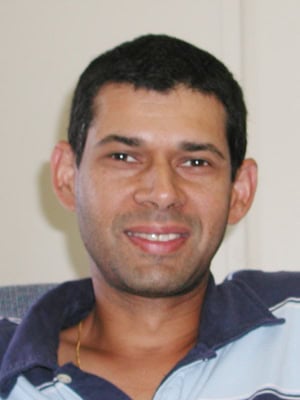Sudhanshu (Ashu) Handa

Ph.D., Kenan Eminent Professor, Public Policy
shanda@email.unc.edu
Curriculum Vitae
Google Scholar Profile
PubMed Publications
CPC Publications
Dr. Handa is an economist working on poverty, health and human development in sub-Saharan Africa. He is co-PI of The Transfer Project, a regional initiative with UNICEF and FAO to understand the broad effects of government sponsored cash transfer programs in sub-Saharan Africa. He is currently studying the long-term effects of cash transfers in Zambia and Malawi.
Dr. Handa is an economist working on poverty, health and human development in sub-Saharan Africa. He is co-PI of The Transfer Project, a regional initiative with UNICEF and FAO to understand the broad effects of government sponsored cash transfer programs in sub-Saharan Africa. See the project website (https://transfer.cpc.unc.edu/) for further information on the Transfer Project. He is currently studying the long-term effects of cash transfers in Zambia and Malawi.
Handa served as Chief of Social & Economic Policy at UNICEF's Office of Research-Innocenti, Florence, Italy, in 2013-2016 while on leave from UNC. In that capacity he led the Innocenti Report Card Series, UNICEF's flagship publication on the well-being of children in rich countries. The 2014 Report Card focused on the impact of the great recession on child poverty, and was featured in over 100 major media outlets across the globe, including the Washington Post, Financial Times, The Guardian (UK), Republica (Italy), El Pais (Spain), AP, and Rueters. The 2016 Report Card tracked bottom-end inequality among children in 41 rich countries over time, measured through children's health, education and income.
The Transfer Project evaluation of the Kenya Cash Transfer for Orphans & Vulnerable Children (partially funded by an NIMH R01) is the first study to examine the impact of a government poverty program on HIV behavioral risk. This work have been featured in a high-level briefing paper published by the Inter-Agency Task Team on HIV Prevention & Social Protection, led by UNAIDS, UNICEF and the World Bank. Similar studies that examine the HIV prevention aspects of national poverty programs have been led by Handa in Zambia, Malawi and Zimbabwe. The Transfer Project evaluations also collect rich data on household demographic change (fertility, migration), human capital (schooling, health, nutrition), poverty (consumption, food security), and preferences and psychology of decision-making (time and risk preference, mental health, subjective risk assessment, subjective well-being). These data sets provide a wealth of data to explore population-related questions, and all are set within the context of a rigorous (usually RCT) impact evaluation that allows ready identification of 'income shocks' (the cash transfer) on these outcomes. Beyond the cash transfer, because the data are longitudinal (typically involving three waves of data) with large sample sizes (~3000 households, 15,000 individuals), they are a rich source of high quality longitudinal data to support analyses on the determinants of family structure, human development and behavioral psychology among poor rural populations in Africa.
Handa's recent work focuses on the longer term effects of national poverty alleviation programs. He received funding from the International Initiative for Impact Evaluation (3IE) to conduct a 7-year follow-up survey on the sample for the Zambia Child grant Evaluations study. He also received funding from the NIH/NIA to conduct an eight-year follow-up of the cohort used to evaluate the Malawi Social Cash Transfer Program.
Handa is also conducting work on the health and economic effects of cooking. He was awarded a five-year grant (R01ES023861) from the NIEHS to study the health and poverty impacts of a private sector cook stove company operating in Western Rwanda (Inyenyeri). This project is highly inter-disciplinary and includes intensive measurement of indoor air pollution through personal air pollution measurements among 180 cooks, as well as area air monitoring and a full household socioeconomic survey among 1500 households at baseline and follow-up. This study is the first cook stove intervention that evaluates a truly scalable approach to addressing clean air.
Associated Projects
- An empirically driven theory of poverty reduction
- Cash transfers, relationship dynamics, and intimate partner violence among youth in Malawi
- Dissemination of Data from Randomized Controlled Trials for Demographic Research
- Evaluating Governance Reform using a Case-Control Approach
- Ghana LEAP Integrated Services Evaluation
- Health and Poverty Effects of a Large-scale Cookstove Initiative in Rwanda
- The effect of poverty, stress and immune function on health across the life-course
- Transfer Project
